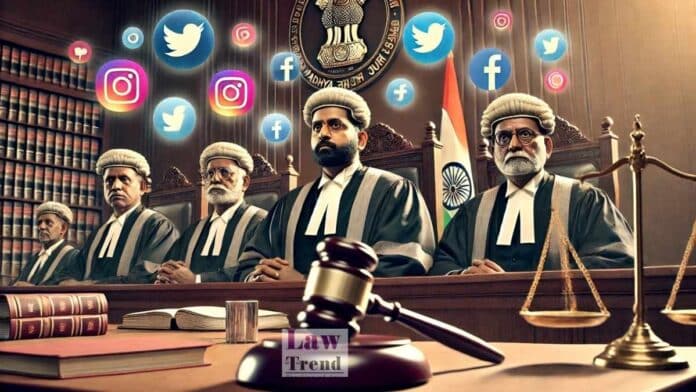In a significant judgment, the Andhra Pradesh High Court dismissed a Public Interest Litigation (PIL) alleging police excesses against social media users, drawing a sharp line between genuine activism and the misuse of online platforms. The court observed that individuals spreading false information or inciting hatred cannot be considered “social media activists.” A division bench
To Read More Please Subscribe to VIP Membership for Unlimited Access to All the Articles, Download Available Copies of Judgments/Order, Acess to Central/State Bare Acts, Advertisement Free Content, Access to More than 4000 Legal Drafts( Readymade Editable Formats of Suits, Petitions, Writs, Legal Notices, Divorce Petitions, 138 Notices, Bail Applications etc.) in Hindi and English.




